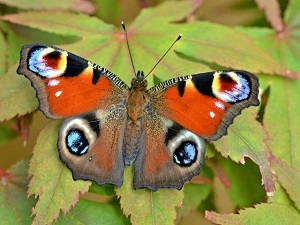Big Butterfly Count 2025
The returns have been analysed and can be seen on the Butterfly Conservation website. The numbers are a vast improvement on 2024’s record lows, but experts warn urgent measures are still needed to reverse long-term decline.
Each year Butterfly Conservation organises a nationwide count.
It is described on its website as
a nationwide citizen science survey aimed at helping us assess the health of our environment.
It was launched in 2010 and has rapidly become the world's biggest survey of butterflies.
Over 64,000 citizen scientists took part in 2022, submitting 96,257 counts of butterflies and day-flying moths from across the UK.
The above website gives full details including an app (iRecordButterfliesApp) and a download of an identification chart.
There is even advice on how to prepare your chosen site to attract butterflies.
The survey takes place between 18th of July and 10th of August.
Results can be submitted until 31st August.
Big Butterfly Count 2024
The survey is complete.
The returns have been analysed and can be seen on the Butterfly Conservation website.
The results are alarming - sadly confirming comments in Sambourne Jottings wildlife reports saying how scarce are butterflies.
Wildlife charity Butterfly Conservation has today declared a national ‘Butterfly Emergency’, with results of this summer’s Big Butterfly Count showing a marked and hugely concerning decline in numbers.
The full picture, detailed on the charity's website (link above), makes worrying reading.
On a positive note the charity site has a Gardening Blog with a variety of steps you can take to help the situation.
Big Butterfly Count 2023
The Big Butterfly Count has started.
Butterfly Conservation
To take part all you need to do is spend 15 minutes in any sunny spot and record the number and type of butterflies you see. It is open to anyone, of any age, in any part of the UK - towns, cities or the countryside.
Lots of help is available on the the butterfly conservation charity and organization website which can be found at. There is a guide to identification of the types. They have also provided an app (iOS and Android). The submissions will be added to a map which can be viewed interactively.The organization website includes a section on moths and gems like the "Discover and Learn Portal".
If you follow the excellent "Nature Jottings from Perrymill Lane" - published and archived on this website - you will know that Sambourne hosts a variety of butterflies.
The survey is complete.
The returns have been analysed and can be seen on the Butterfly Conservation website.
RSPB Big Garden Birdwatch January 2025
Top 10:
- House sparrow
- Blue tit
- Woodpigeon
- Starling
- Black bird
- Robin
- Great tit
- Goldfinch
- Magpie
- Long-tailed Tit
RSPB Big Garden Birdwatch January 2024
Top 10:
- House sparrow
- Blue tit
- Starling
- Woodpigeon
- Black bird
- Robin
- Great tit
- Goldfinch
- Magpie
- Long-tailed Tit
RSPB Big Garden Birdwatch January 2023
Top 10:
- House sparrow
- Blue tit
- Starling
- Woodpigeon
- Black bird
- Robin
- Goldfinch
- Great tit
- Magpie
- Long-tailed Tit